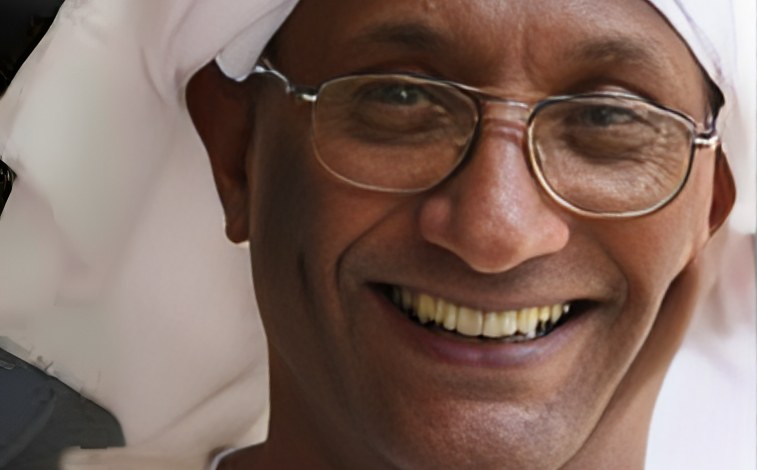Paulo Valery in a Displacement Shelter in Kosti (Part 2)

Abdullah Ali Ibrahim
The online weekly magazine “Atr” described the ongoing catastrophic war as a situation where, in a moment of hardship, a human keeps their shoulders above water. The coverage of the floods did not use the term “woe to us” but addressed not only their origins but also what we must do about them. The magazine criticized the state’s poor urban and rural planning, which did not account for the paths of waterways in housing plans, distributing land in flood-prone areas without restraint. The journalists quoted a flood-affected individual: “Water is water, whether it pours a little or a lot, and waterways do not deviate from their path.” Yet, these waterways lost their way due to human intervention.
As a sign of keeping their head above water, journalists proposed that Sudan file a grievance with the International Climate Grievance Mechanism as a victim of Western industries, which have exacerbated the calamity. Sudan ranks sixth among the top 10 countries affected by climate change. The first climate war of the 21st century erupted in Darfur in 2003, where farmers and herders fought over scarce resources during a drought—a conflict that still burns and has spread throughout the country. Another aspect of this thoughtful article criticizes the focus of research on materials like reinforced concrete and steel, which are used in only 29% of buildings, while 61% are constructed from local materials like mud and tree branches.
“Atr” gave a voice to the war victims, moving them beyond the image of the hapless “victim” popularized by Egyptian actor Adel Imam and commonly portrayed in the media, particularly by those seemingly patronizing these victims in their calls for an end to the war. These narratives revealed that the victims had opinions on the type of care they received—or did not receive. They reclaimed their identity as displaced citizens entitled to care during wartime.
Their narratives also spoke of resuming life despite the war. Mohamed Omar, owner of the Waraqeen bookstore in Khartoum, refused to surrender to the Rapid Support Forces’ eviction, moved to Atbara, and opened a bookstall. He contacted Al-Musawwarat Publishing House for books, which directed him to a stockpile in the besieged city of Al-Obeid in Kordofan. Ensuring the safe passage of the books, he wrote his name and phone number on the boxes, which were intercepted by the armed forces in Kosti. To secure the books further, the truck driver mixed them with a permitted cargo of peanuts and smuggled them to Madani, where resistance youth secured and transported them to Halfa in a six-day journey, facing government obstacles until they reached Al-Qadarif, where a successful book fair sold 70% of the stock.
Culture remained a refuge for the victims’ mental well-being. The Literary Association, founded half a century ago in Sennar, resumed its discussion circles after members returned post-war. Artists celebrated World Theater Day in Port Sudan with a play addressing gender and social issues, and the “Free Theater” held its eighth festival in Kosti with performances in displacement shelters. Rabie Youssef from this group said art is a form of resistance: “against ugliness, death, and poverty.” The historical “Shorouq Forum” in the city hosted well-attended poetry nights, and “Shaleel Cafe” in Al-Qadarif revitalized with notable musical activities, as writer Awad Mashawi reestablished his forum there after fleeing Khartoum.
Education, a critical concern for families, saw volunteers forming “Emergency Committees” to meet the need. In Al-Fashir, a school was established in Al-Salam neighborhood to serve as a shelter for displaced persons, providing both academic lessons and recreational activities to lighten the students’ spirits. In Kosti, an exceptional educational experiment was proposed by teacher Hadi Radi, urging volunteer teachers to adopt Paulo Freire’s “Pedagogy of the Oppressed” approach to provide psychological support through education. Hadi concluded the school term satisfied with the adaptation of Freire’s ideas to the harsh realities of post-war Sudan.
If war news in the media tends to portray war victims as helpless, “Atr” journalism restored their voice as oppressed but resilient displaced citizens, embodying the Sudanese notion of ‘sirdabah’—patience and perseverance.



